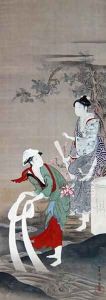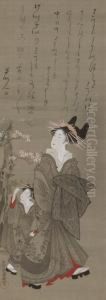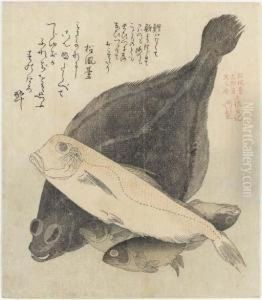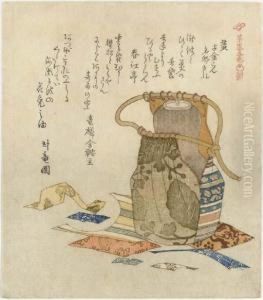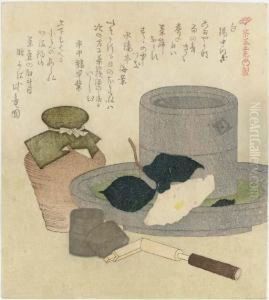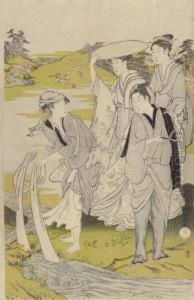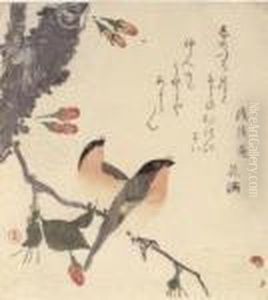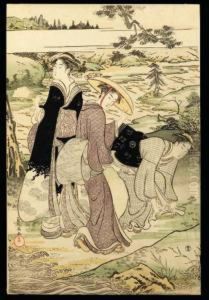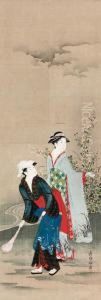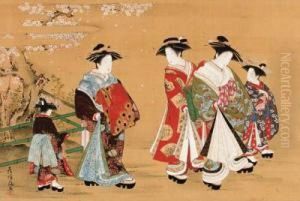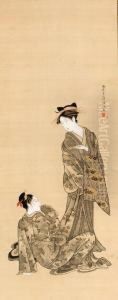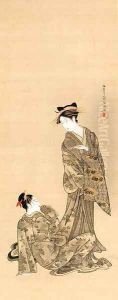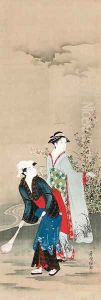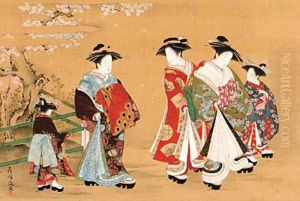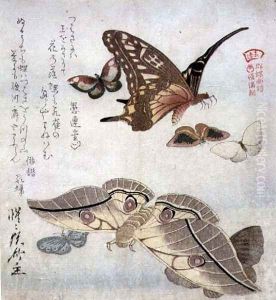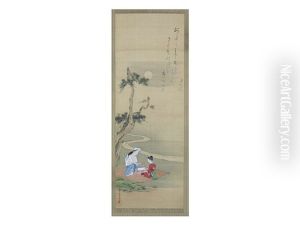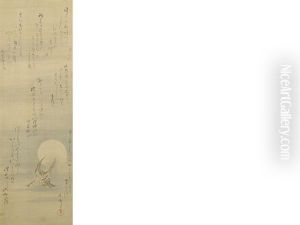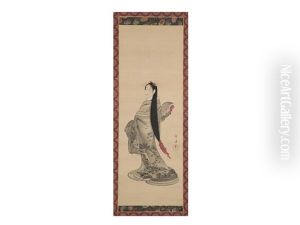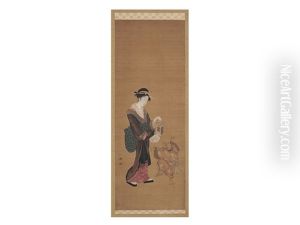Kubo Shunman Paintings
Kubo Shunman was a Japanese artist, poet, and designer of ukiyo-e woodblock prints, born in Edo (modern Tokyo) in 1757. His work is notable for its elegance and refinement, qualities that set him apart from many of his contemporaries in the ukiyo-e tradition. Shunman’s artistic career spanned a period of significant change in Japan as it slowly started to open up to the outside world after centuries of isolation under the Tokugawa shogunate.
Shunman initially trained under Kubo Shunsho, a well-known painter and printmaker. However, he soon developed his own distinctive style, which was characterized by a delicate use of color and a focus on beauty and harmony. He was particularly adept at depicting scenes of daily life, flowers, and birds with an almost lyrical quality. Shunman was also involved in the production of surimono prints, which were privately commissioned for special occasions and often featured poems alongside the images, reflecting his deep involvement with the literary circles of his time.
Despite his considerable talents and contributions to the ukiyo-e genre, Shunman did not achieve the same level of fame as some of his contemporaries, such as Hokusai or Utamaro. Nonetheless, his works are highly valued by collectors and scholars for their unique aesthetic and historical significance. Throughout his career, Shunman also engaged in book illustration and the design of kyōka (comic verse) anthologies, showcasing his versatility as an artist and his deep connection to the cultural and artistic movements of his time.
Kubo Shunman passed away in 1820, leaving behind a legacy that, while perhaps not as widely recognized as that of some of his peers, is deeply appreciated for its contribution to the development of the ukiyo-e tradition. His work continues to be studied and admired for its beauty, technical skill, and insight into the culture of Edo period Japan.
